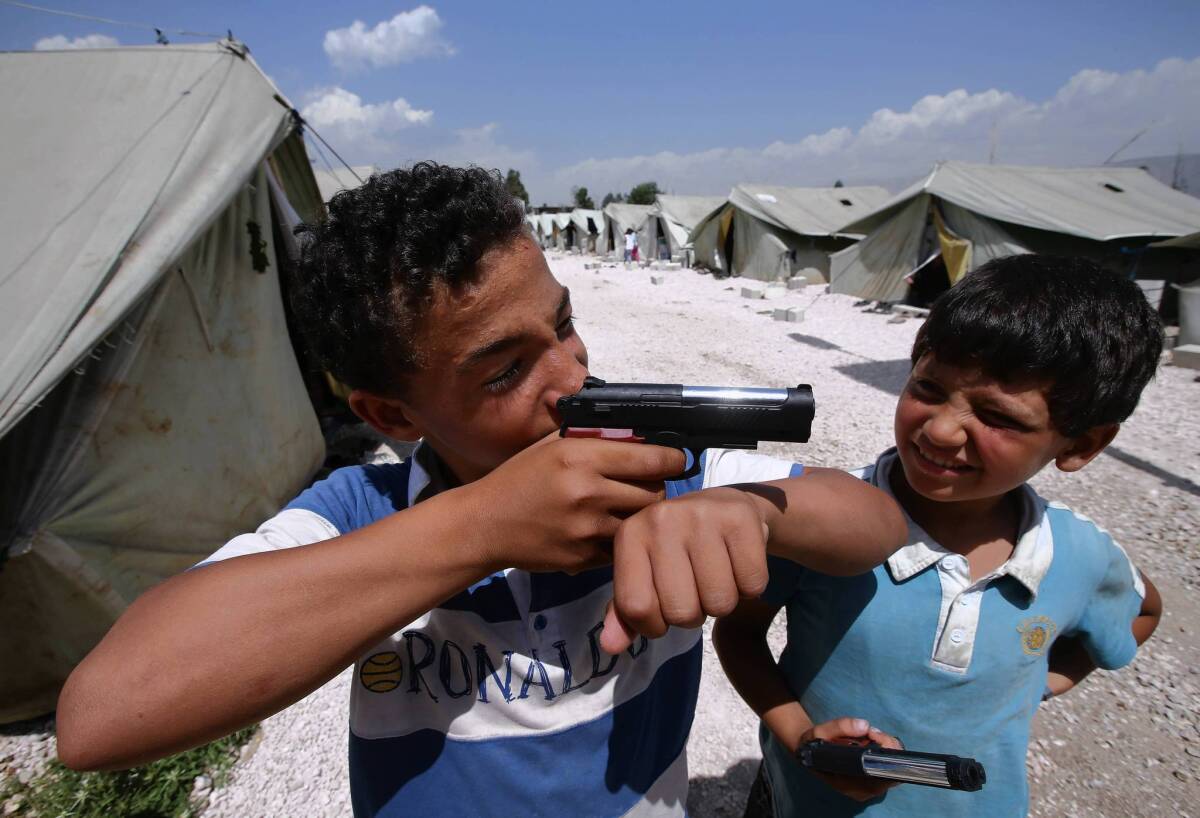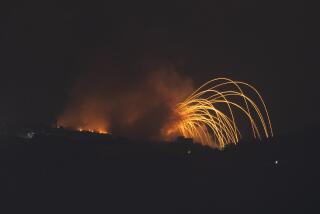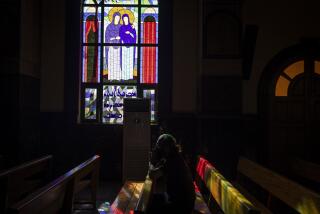Syria’s military shows unexpected resilience

BEIRUT — The military onslaught this week against the strategic Syrian town of Qusair has dramatized a surprising combat resilience that has already put rebel forces on the defensive on other key fronts, including near the capital, Damascus.
The military’s still-robust fighting ability — apparently bolstered in Qusair by the presence of combatants from Hezbollah, the Lebanese militant group — has confounded predictions from experts and foreign capitals that the Syrian government’s days were numbered.
Some are recalibrating their forecasts of the regime’s certain demise, even as Russia and the United States try to organize an international conference meant to jump-start peace talks and create a transitional government in Syria.
In recent weeks, forces loyal to President Bashar Assad have scored significant victories in the south and north, while pushing back rebel forces who not long ago seemed poised to storm the capital. The fractured opposition complains that weapons and ammunition are becoming scarce and money is drying up.
The latest assault on Qusair, near the Lebanese border, which began Sunday after a long siege by the military, is just the latest indication that the government side still has a lot of punch — despite heavy casualties, mass defections and the loss of vast stretches of territory.
At least 90 people have been killed in two days of fighting in Qusair, according to the Syrian Observatory for Human Rights, a British-based pro-opposition group.
Qusair had been a rebel bastion for more than a year, a way station for weapons and supplies destined for combatants in nearby Homs, a city long at the heart of the rebellion.
The government has thrown troops, air power and artillery against the rebel forces arrayed in Qusair, demonstrating its continued dominance in firepower. Assertions that the regime’s armor and aircraft would wear down from steady action and a lack of spare parts do not appear to have been borne out.
“It forces us to really reconsider this thing that everyone has been taking for gospel for these two years now, that the regime’s fall is inevitable,” said Joseph Holliday, a fellow at the Institute for the Study of War, a Washington-based think tank. “From a pure sustainment standpoint, they’ve been more impressive than anyone gave them credit for.”
The fall of Qusair would be a severe blow for rebels in Homs and other nearby opposition-controlled cities, such as Rastan, and would solidify government control of the main highways between the capital and the Mediterranean coast, homeland of Assad’s Alawite minority, which controls the nation’s security apparatus.
“The weapons and aid to Homs are coming through us,” said Muhammad Raed, a rebel reached via Skype in Qusair. “So if Qusair falls, then Homs falls.”
Others say the loss of Qusair may not be quite as catastrophic for the opposition. The long Lebanese border offers other entry points for materiel and fighters destined for rebels in the area. Nearby Sunni Muslim villages probably will still aid rebels, who are mostly from Syria’s Sunni majority. And the fall of Qusair would not affect supplies to rebel strongholds in northern Syria.
Still, just a few months ago it seemed that rebels were poised to cut key routes across the country and isolate government forces in places such as the northern city of Aleppo, where the military has hung on through almost nine months of fighting. In March, rebels were seizing towns, military bases, dams and oil fields with regularity, and even overran Raqqah in north-central Syria, the first provincial capital to fall into opposition hands.
In mid-April, however, the military broke a six-month rebel siege of a pair of military bases in the northern province of Idlib, reopening a key overland supply line to troops in Aleppo. That freed up the use of aircraft that had previously been resupplying the Aleppo garrison. The government has recorded a series of victories since then.
In the case of Qusair, fierce clashes continued Monday, and opposition activists disputed government accounts that the town had been largely recaptured. The official Syrian news service declared that the army had “restored security and stability” to the town, while capturing weapons caches, destroying tunnels used as shelters and eliminating “large numbers of terrorists, most of them non-Syrians.” The government routinely refers to opposition fighters as terrorists.
Both sides in the battle have tried to seize on the narrative that their opponents include legions of foreigners. The government has pointed to the presence of Islamic militants from as far away as North Africa and Europe among the rebels, many fighting with the Al Qaeda-linked Al Nusra Front.
But the battle also has opened the way for the opposition to condemn the presence of foreign combatants — in this case Shiite Hezbollah militiamen from Lebanon — fighting alongside Syrian troops. Rebel forces say 30 or more Hezbollah militants were killed in the battle for Qusair, an assertion that could not be independently confirmed.
Reports surfaced Monday of funerals in Shiite towns in Lebanon’s Bekaa Valley and elsewhere for Hezbollah fighters slain in Qusair. A pro-Hezbollah Facebook page listed the names of 16 militants killed in Qusair, though there was no official acknowledgment from Hezbollah of any casualties.
Hezbollah has not confirmed its part in the battle, but has acknowledged before that its forces have been fighting to protect Shiite villages near Qusair. Many residents are Lebanese citizens whose ancestral lands were left on the Syrian side almost a century ago, when European powers carved up the former Ottoman Empire. Hezbollah says Shiite villagers have been subject to sectarian assault by Sunni rebels.
“We ... will not abandon the Lebanese in the countryside of Qusair, to be exposed to attacks by armed groups, and we will not hesitate to offer help to whoever needs it,” Hezbollah leader Hassan Nasrallah declared last month.
The Hezbollah chief also said that the group would not abandon Assad, its longtime ally. It would seem that Syria can count on a potent fighting force to supplement its military as the war grinds on in its third year, without an end in sight.
“The fact that Hezbollah has joined the fight has given the regime the flexibility to go on the offensive,” said Holliday of the Institute for the Study of War. “It provides an extra bump in manpower.”
Times staff writer Raja Abdulrahim in Los Angeles and special correspondent Nabih Bulos in Beirut contributed to this report.
More to Read
Sign up for Essential California
The most important California stories and recommendations in your inbox every morning.
You may occasionally receive promotional content from the Los Angeles Times.










